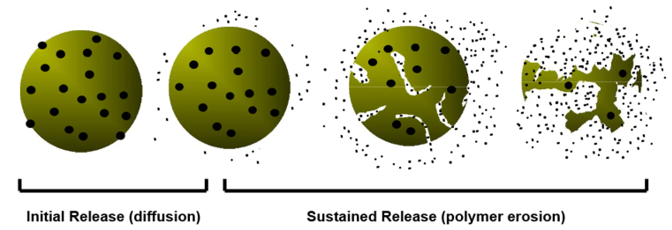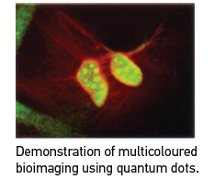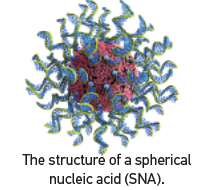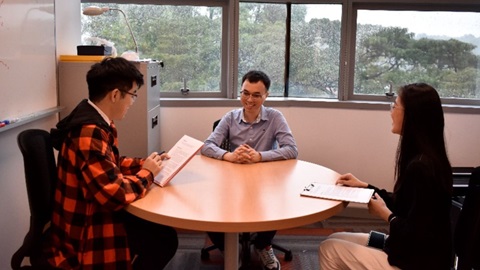When Nanoscience met Medicine: 2024 Kavli Prize in Nanoscience
Assoc Prof Xue Can | School of Materials Science & Engineering, NTU
The 2024 Kavli prize in Nanoscience was awarded to Prof Robert S. Langer (Massachusetts Institute of Technology), Prof Armand Paul Alivisatos (University of Chicago) and Prof Chad A. Mirkin (Northwestern University) , who have pioneered the use of synthetic nanoscale materials combining with biologically active molecules for biomedical applications including drug delivery, bioimaging and biodiagnostics.

[From left] Prof Robert Langer, Prof Armand Paul Alivisatos and Prof Chad Mirkin.
Image credit to: https://www.kavliprize.org/prizes/nanoscience/2024
Since 1970s, Prof Langer has endeavoured to develop materials to improve controlled release of drugs. He has first demonstrated that some polymers could slowly erode in a cellular environment, and further developed a variety of polymer nano-matrix to encapsulate drug molecules to achieve sustained release according to the polymer erosion. His most distinguished work was the pioneering study on the controlled delivery of antigens with polymer nanoparticles, which eventually led to modern development of mRNA vaccines for COVID-19.

Sustained release of drugs encapsulated in the polymer nanoparticle along with slow erosion of the polymer matrix.
Image credit to: https://www.kavliprize.org/prizes/nanoscience/2024

Prof Alivisatos has developed a variety of synthetic approaches for semiconductor nanocrystals, known as quantum dots, with controllable sizes and shapes. Inspired by the size-dependent light emission features of quantum dots, Prof Alivisatos has pioneered the studies on biological functionalisation of quantum dots and their usage as fluorescence labels for bioimaging. He has first demonstrated the multi-coloured bioimaging using quantum dots of different sizes, which provided an emerging strategy for in vivo visualization of cancer cells.
 Prof Mirkin has focused on the development of DNA-functionalised metal nanoparticles, which is now known as spherical nuclei acid (SNA). He found that the complementary DNA interactions could bring SNAs close with each other and lead to distinct
colour change, which could be used for recognition of biological molecules. Based on this principle, Prof Mirkin and his co-workers have developed a variety of biosensing platforms with simple colorimetric readout and ultrahigh sensitivity. Further, he
has discovered that SNAs could smoothly enter living cells and be utilised for intracellular mRNA detection, which led to invention of novel cancer diagnostic and therapeutic technologies.
Prof Mirkin has focused on the development of DNA-functionalised metal nanoparticles, which is now known as spherical nuclei acid (SNA). He found that the complementary DNA interactions could bring SNAs close with each other and lead to distinct
colour change, which could be used for recognition of biological molecules. Based on this principle, Prof Mirkin and his co-workers have developed a variety of biosensing platforms with simple colorimetric readout and ultrahigh sensitivity. Further, he
has discovered that SNAs could smoothly enter living cells and be utilised for intracellular mRNA detection, which led to invention of novel cancer diagnostic and therapeutic technologies.
Prof Robert Langer, Prof Armand Paul Alivisatos and Prof Chad Mirkin are pioneers in the use of engineered nanoparticles for biomedical research, having made foundational contributions to the field of nanomedicine. The 2024 Kavli Prize in Nanoscience highlights the fundamental role that nanoscience and nanotechnology have played in advancing biomedical research.
For more information, watch the video on the 2024 Kavli Prize in Nanoscience, starting at 8:39 mins














/enri-thumbnails/careeropportunities1f0caf1c-a12d-479c-be7c-3c04e085c617.tmb-mega-menu.jpg?Culture=en&sfvrsn=d7261e3b_1)

/cradle-thumbnails/research-capabilities1516d0ba63aa44f0b4ee77a8c05263b2.tmb-mega-menu.jpg?Culture=en&sfvrsn=1bc94f8_1)






